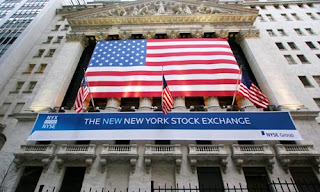Move follows decision to strip BBA of its association with benchmark rate, which will be run by a London-based subsidiary
Libor might stand for the London interbank offered rate, but from next year the scandal-hit benchmark rate will be set by the body that runs the New York Stock Exchange in the latest attempt to clean up the City.
Libor, which is used to price $300tn (£192tn) of financial products around the world, has been overseen until now by the British Bankers' Association (BBA). But its integrity has been questioned after banks and other financial firms were found to have rigged the rate.
The contract to run the process of setting the rate was put out to tender in April after Martin Wheatley, the boss of new City regulator the Financial Conduct Authority (FCA), concluded in a report that the BBA should be stripped of its long-running association with Libor. It is not clear if the Libor name will survive in the long term.
NYSE Euronext, which runs the New York Stock exchange and the London futures exchange and is itself in the throes of being taken over by a rival, is setting up a new London-based subsidiary to run Libor. NYSE Euronext Rate Administration Ltd will be regulated by the FCA, which is being given formal oversight of the rate amid the ongoing investigation into the way Libor was rigged in the past. It is thought to have paid £1 to take over the rate-setting function.
Wheatley said the selection of NYSE Euronext, which is thought to have seen off competition from data provider Thomson Reuters and the London Stock Exchange, was "an important step in enhancing the integrity of Libor".
NYSE Euronext runs stock market indices including the Cac 40 in France.
Certain changes to Libor have already been implemented. It was originally set by a panel of banks being asked the price at which they expect to borrow over 15 periods, from overnight to 12 months, in 10 currencies. The number of currencies has been reduced to five and rates published over seven borrowing periods. From this month the rates the banks submit are no longer published instantly but with a three-month delay. The data was collected by Thomson Reuters, which will no longer be involved, and published by the BBA.
The BBA will work with the new administrator, selected by a panel led by Lady Hogg, who chairs the Financial Reporting Council, until 2014 when the handover is expected to take place.
The government, which is under fire for watering down other aspects ofbanking reform, said the appointment of NYSE Euronext was part of its commitment to "developing a safer and strong banking sector".
"We want a financial sector that serves the interests of business and helps to drive economic growth. That is why since the Libor scandal last summer we have worked hard to reform this major international benchmark. For the first time it is under the scope of regulation and we have introduced a new criminal offence for the manipulation of Libor," said Greg Clark, financial secretary to the Treasury.
He was criticised on Monday by Andrew Tyrie, the Conservative MP who chaired the parliamentary commission on banking standards, also sparked by the Libor crisis, for introducing "virtually useless" reforms of the banking sector.
Article Source : http://www.guardian.co.uk
Azure Global’s vision is to be widely recognized as a reputed firm of financial business advisors, achieving real growth for ambitious companies and to become the first choice for F&A outsourcing for accountancy practices and businesses alike and if u want to Setup ur business in United Kingdom then its not difficult in this modern age for more info visit our site Azure Global and join us also On Facebook



